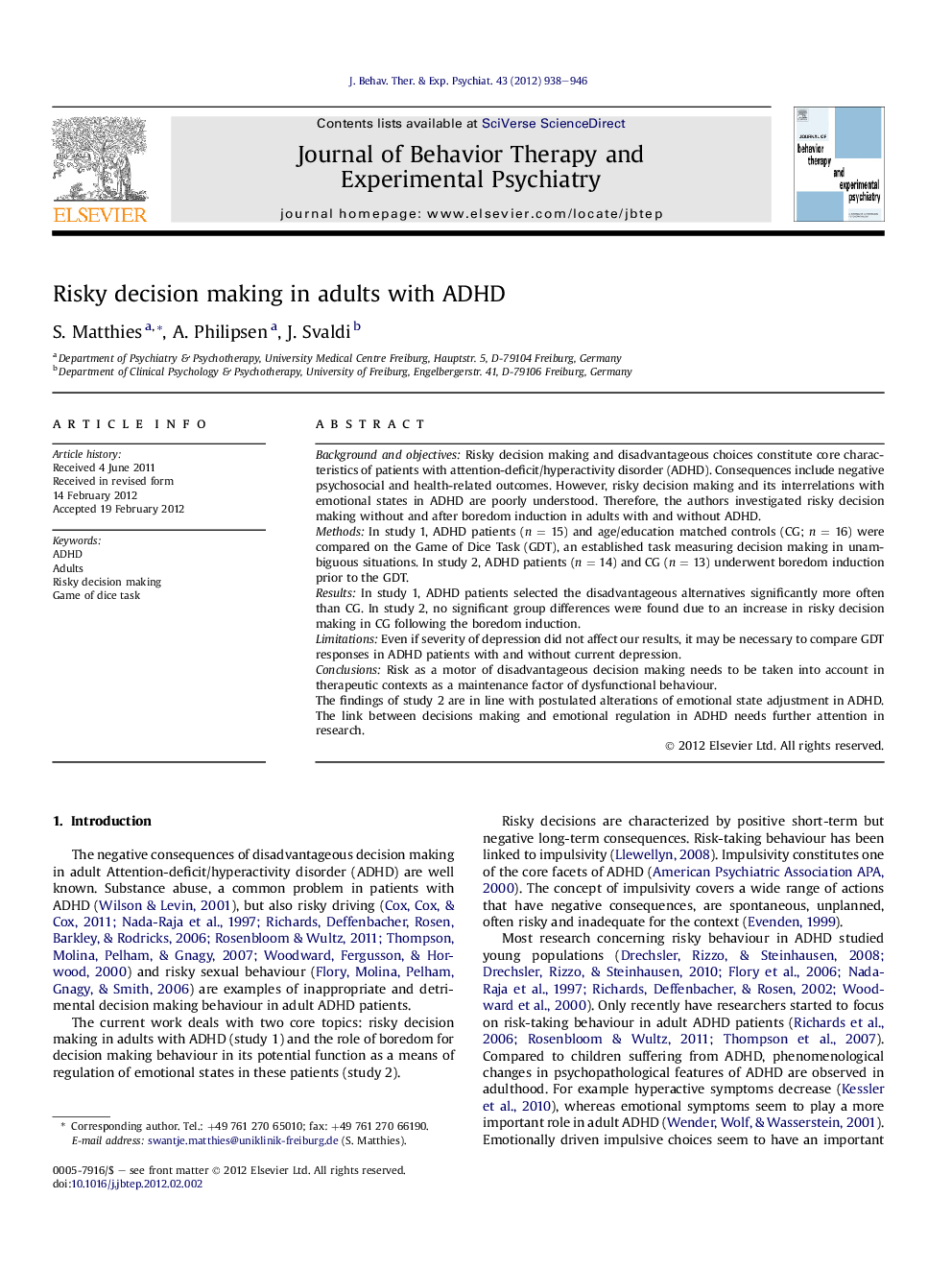| کد مقاله | کد نشریه | سال انتشار | مقاله انگلیسی | نسخه تمام متن |
|---|---|---|---|---|
| 910400 | 917456 | 2012 | 9 صفحه PDF | دانلود رایگان |

Background and objectivesRisky decision making and disadvantageous choices constitute core characteristics of patients with attention-deficit/hyperactivity disorder (ADHD). Consequences include negative psychosocial and health-related outcomes. However, risky decision making and its interrelations with emotional states in ADHD are poorly understood. Therefore, the authors investigated risky decision making without and after boredom induction in adults with and without ADHD.MethodsIn study 1, ADHD patients (n = 15) and age/education matched controls (CG; n = 16) were compared on the Game of Dice Task (GDT), an established task measuring decision making in unambiguous situations. In study 2, ADHD patients (n = 14) and CG (n = 13) underwent boredom induction prior to the GDT.ResultsIn study 1, ADHD patients selected the disadvantageous alternatives significantly more often than CG. In study 2, no significant group differences were found due to an increase in risky decision making in CG following the boredom induction.LimitationsEven if severity of depression did not affect our results, it may be necessary to compare GDT responses in ADHD patients with and without current depression.ConclusionsRisk as a motor of disadvantageous decision making needs to be taken into account in therapeutic contexts as a maintenance factor of dysfunctional behaviour.The findings of study 2 are in line with postulated alterations of emotional state adjustment in ADHD. The link between decisions making and emotional regulation in ADHD needs further attention in research.
► We studied risky decision making in adult ADHD.
► We administered the Game of Dice Task (GDT).
► Adults with ADHD made more risky decisions than controls in the GDT.
► After a boredom induction increased risky decisions were observed in the controls.
Journal: Journal of Behavior Therapy and Experimental Psychiatry - Volume 43, Issue 3, September 2012, Pages 938–946